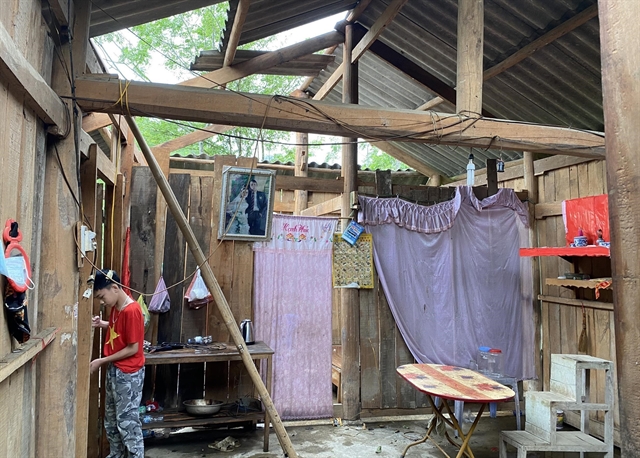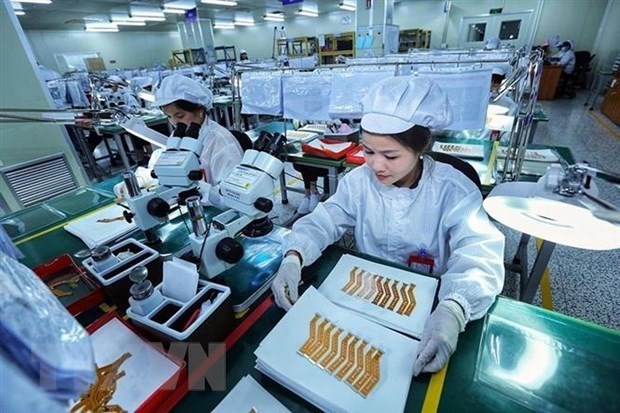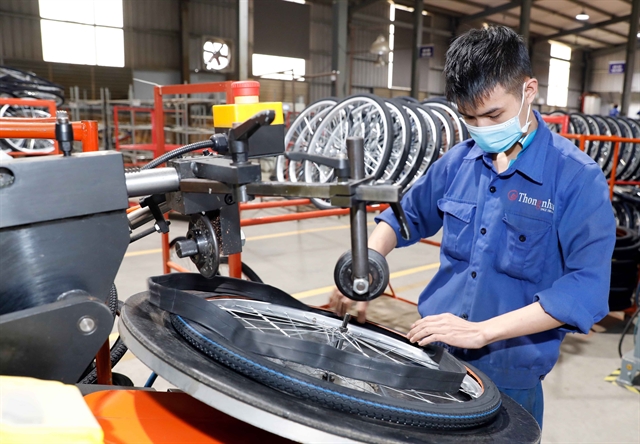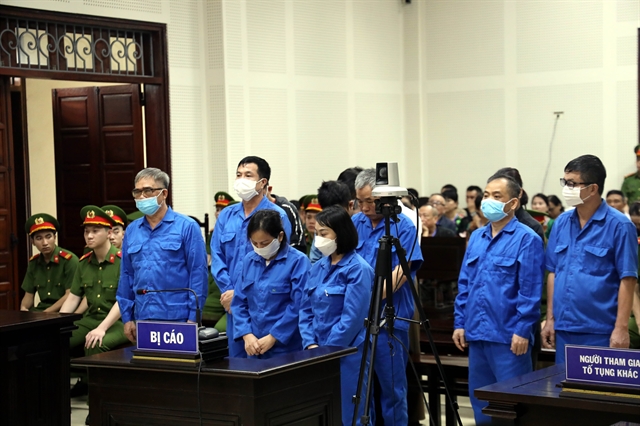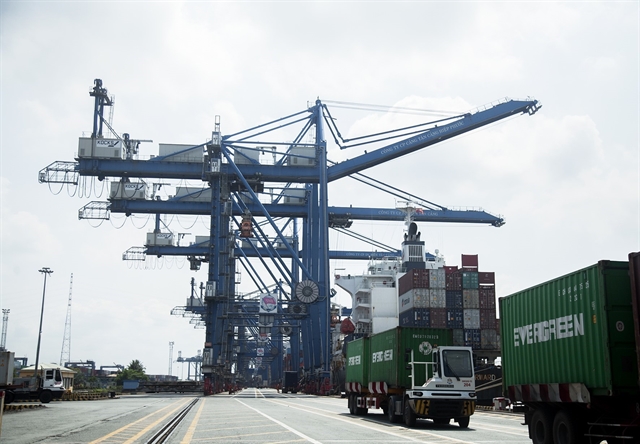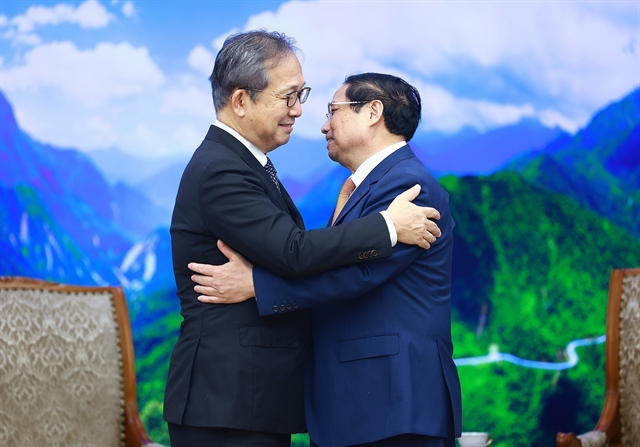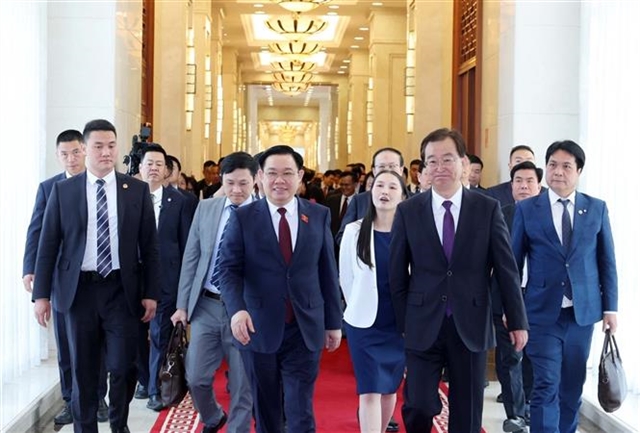 Politics & Laws
Politics & Laws

The National Assembly deputies yesterday passed an investment plan for the construction of the eastern North-South Expressway at the 14th parliament’s fourth session.
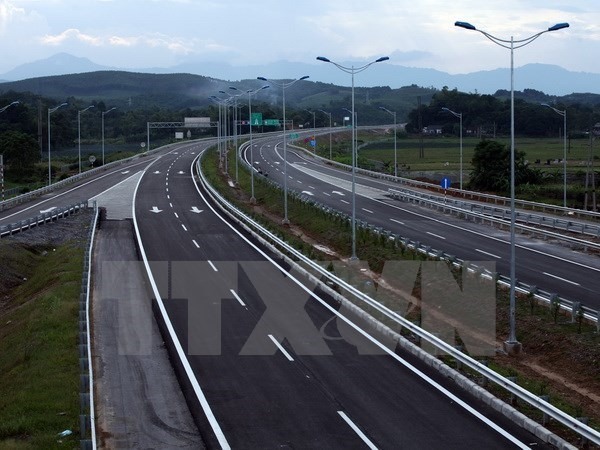 |
| The National Assembly deputies yesterday passed an investment plan for the construction of the eastern North-South Expressway at the 14th parliament’s fourth session. — VNA/VNS Photo |
HÀ NỘI — The National Assembly deputies yesterday passed an investment plan for the construction of the eastern North-South Expressway at the 14th parliament’s fourth session.
With the approval of 83.1 per cent of the deputies, some eastern sections of North-South Expressway with a total length of 654km will be built during the 2017-2020 period.
Specifically, sections from Cao Bồ (Nam Định Province) to Bãi Vọt (Hà Tĩnh Province), Cam Lộ (Quảng Trị Province) to La Sơn (Thừa Thiên-Huế Province), Nha Trang (Khánh Hòa Province) to Dầu Giây (Đồng Nai Province) and the Mỹ Thuận 2 Bridge will be built and put into operation during this period.
The 2021-2025 period will see the completion of the Bãi Vọt (Hà Tĩnh Province) - Cam Lộ (Quảng Trị Province) and Quảng Ngãi Province -Nha Trang sections and the widening of the La Sơn (Thừa Thiên Huế ) - Túy Loan (Đà Nẵng) section to a four–lane road. The section from Cần Thơ to Cà Mau City will be put into operation after 2025.
NA Deputy Secretary-General Lê Bộ Lĩnh said the project would require 3,736ha of land, including 1,037ha of land used for rice cultivation. The land clearance will be implemented in the form of a six-lane road on all parts of the project, except for the Cam Lộ-La Sơn section, which will have four lanes.
It is estimated that the total investment for the project in 2017-2020 period will be VNĐ118.7 trillion (US$5.27 billion), including VNĐ55 trillion ($2.4 billion) from Government and the remainder from investors.
It is divided into 11 sub-projects and will apply modern technology to ensure safety, quality and efficiency.
Transport minister Nguyễn Văn Thể said at a discussion on the project held on Tuesday that due to limited capital investment, a number of sections would be prioritised for development to meet rising passenger and cargo demand in the coming years.
Yesterday the National Assembly also discussed the draft Law on State Secrets Protection.
While most NA deputies agreed that the Law on State Secret Protection is necessary to ensure national security as well as information accession in conformity with state regulations, they proposed changes to improve its efficiency.
Deputy Dương Tấn Quân from Bà Rịa - Vũng Tàu Province asserted that state secrets are national assets. To enhance the protection work, he suggested that the compiling committee supplement the specific regulation on the responsibilities of the persons assigned to draft the law and the persons approaching State Secrets on his mission as well as after they relieve from that duty and retire. Due punishment should be imposed on persons who disclose State Secrets, he said.
According to Lê Thị Nga, a deputy from Thái Nguyên Province and also chairman of the NA’s Judiciary Committee, a number of pieces of information have not been publicised in some ministries, agencies and localities because of concerns that disseminating the information could violate the State Secret policies.
The abuse of State Secret protection policies could severely affect the State, citizens and anti-corruption work, she said.
Many deputies urged a broader definition of “State Secrets”, beyond the current definition of only physical objects.
Deputy Âu Thị Mai from Tuyên Quang Province said people can now easily seize state secrets with modern technology. Therefore, it is necessary to install anti-theft devices and other equipment to prevent fires at places where State Secrets were kept.
Regarding the time window for maintaining the State Secret classification on a given piece of information, Mai suggested the compiling committee create provisions to allow some State Secrets to remain secret for a long time or indefinitely, not just 10, 20 or 30 years.
Sharing Mai’s opinion, Quân emphasised the need to amend the draft law to maintain the State Secret classification on national security-related information for a longer period of time.
Responding to deputies’ suggestions, Senior Lieutenant General Tô Lâm, the Minister of Public Security, said the draft Law on State Secrets Protection should be completed and that the definition of State Secrets should be clarified. — VNS

